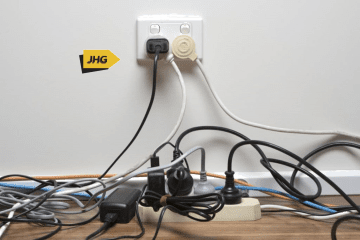As businesses across industries continue to seek ways to reduce their energy consumption and associated costs, electrical power and control engineering has emerged as a key solution. With the right engineering solutions, businesses can optimize their energy usage and reduce their overall energy costs, while also increasing their operational efficiency and sustainability. In this blog post, we’ll explore how electrical power and control engineering can help your business reduce its energy costs and take steps towards a greener, more efficient future.
1. Understanding the Basics of Electrical Power and Control Engineering
Electrical power and control engineering is a specialized field that involves the design, installation, and maintenance of electrical systems that control power, lighting, and other electrical processes. These systems can range from simple circuits to complex industrial automation systems, and are used across a wide range of industries, including manufacturing, transportation, and energy. By optimizing the design and operation of these systems, businesses can achieve significant energy savings and reduce their overall energy costs.
2. The Benefits of Electrical Power and Control Engineering for Energy Efficiency
There are a number of ways that electrical power and control engineering can help businesses reduce their energy costs and improve their energy efficiency. One key area is in the design and optimization of electrical systems, which can be tailored to meet the specific needs of the business and reduce energy waste. For example, a power and control engineering team can design and install energy-efficient lighting systems, implement power factor correction systems to reduce energy losses, and optimize the performance of motors and other equipment to reduce energy usage.
Another area where electrical power and control engineering can help businesses reduce their energy costs is through the use of automation systems. Automation allows for precise control over energy usage, reducing waste and optimizing energy consumption. For example, an automated control system can adjust lighting and HVAC systems based on occupancy or temperature, ensuring that energy is only used when it’s needed.
3. Maximizing Energy Efficiency with Preventative Maintenance
Preventative maintenance is another key aspect of electrical power and control engineering that can help businesses reduce their energy costs. By ensuring that electrical systems are properly maintained and functioning at peak efficiency, businesses can minimize downtime, reduce the risk of equipment failure, and prevent energy waste. Preventative maintenance can include regular inspections, testing, and calibration of electrical equipment, as well as the implementation of predictive maintenance techniques to detect and address potential issues before they become major problems.
4. Working with an Electrical Power and Control Engineering Company
To achieve the greatest energy savings and efficiency gains, businesses should consider working with a specialized electrical power and control engineering company. These companies have the expertise and experience needed to design, install, and maintain energy-efficient electrical systems that are tailored to the unique needs of each business. They can also provide ongoing support and maintenance services to ensure that these systems continue to operate at peak efficiency over time.
In conclusion, electrical power and control engineering is a powerful tool for businesses looking to reduce their energy costs and improve their energy efficiency. By optimizing the design and operation of electrical systems, implementing automation and control systems, and prioritizing preventative maintenance, businesses can achieve significant energy savings and move towards a greener, more sustainable future. To learn more about how electrical power and control engineering can benefit your business, contact us today at Just HardRich Global Resources Limited.




